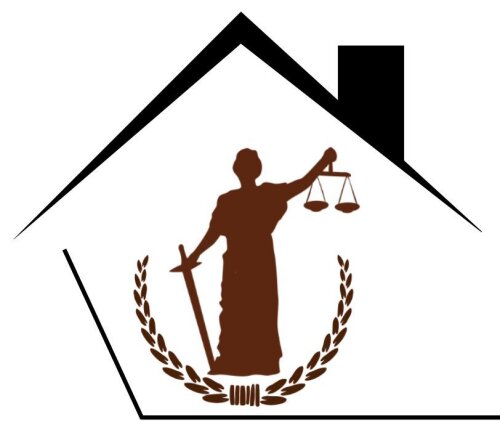Best Sanctions & Export Controls Lawyers in Santa Marta
Share your needs with us, get contacted by law firms.
Free. Takes 2 min.
List of the best lawyers in Santa Marta, Colombia
About Sanctions & Export Controls Law in Santa Marta, Colombia
Sanctions and export controls are legal mechanisms that regulate the movement of goods, technologies, and services across national borders. In Santa Marta, Colombia, these laws are implemented to comply with national security, foreign policy objectives, and international commitments. Export controls restrict or monitor the flow of certain sensitive items, while sanctions may prohibit or limit transactions with specific countries, entities, or individuals. Understanding these laws is essential for businesses, organizations, and individuals involved in international trade or cross-border transactions based in Santa Marta.
Why You May Need a Lawyer
Legal assistance in the field of sanctions and export controls can be crucial under several circumstances. You may need a lawyer if you are:
- Exporting or importing goods and are unsure about compliance with Colombian or international regulations
- Operating or partnering with companies in sanctioned countries
- Dealing with investigations or enforcement actions by authorities regarding possible sanctions or export control breaches
- Setting up compliance programs for your business to avoid unintentional violations
- Uncertain about changes in the law that may affect your transactions in or from Santa Marta
- Facing penalties, administrative actions, or criminal charges related to export controls or sanctions
- Involved in the transfer of technology or dual-use goods with potential military applications
- Receiving or sending funds to and from countries subject to restrictions
- Subject to asset freezing or financial transaction monitoring as part of anti-money laundering efforts
Local Laws Overview
Colombia maintains a structured system for sanctions and export controls, which applies to all regions, including Santa Marta. The key aspects include:
- The Ministry of Commerce, Industry, and Tourism regulates the export of goods and services, particularly those with dual-use or military applications.
- The Colombian government aligns with United Nations Security Council sanctions and other international commitments, including those from the Organization of American States.
- Import and export licensing requirements are enforced for sensitive products, including chemicals, advanced technologies, and certain agricultural goods.
- Financial sanctions, such as asset freezes and restrictions on banking with specific entities, are administered in coordination with the Superintendencia Financiera (Financial Superintendency of Colombia).
- Violations can lead to administrative penalties, fines, or, in severe cases, criminal prosecution.
Businesses and individuals in Santa Marta must stay updated with both national and international developments in sanctions and export controls, particularly when trading with countries subject to restrictions or dealing with goods that may have compliance risks.
Frequently Asked Questions
What are export controls in Colombia?
Export controls are regulations that restrict the export of certain goods, services, or technology from Colombia, especially those with military or dual-use potential. These laws help ensure exports do not compromise national security or international obligations.
Who enforces sanctions and export controls in Santa Marta?
Sanctions and export controls are primarily enforced by the Ministry of Commerce, Industry, and Tourism and the Financial Superintendency, with assistance from customs authorities and law enforcement in Santa Marta and nationwide.
Which goods are subject to export controls?
Goods subject to export controls include military equipment, dual-use technology, chemicals, pharmaceuticals, and certain agricultural products. A detailed list can be obtained from the government authorities or a qualified lawyer.
What are the penalties for violating sanctions or export controls?
Penalties can range from administrative fines and seizure of goods to the suspension of business licenses or criminal prosecution, depending on the severity and intent of the violation.
Do sanctions apply to individuals as well as businesses?
Yes, both individuals and businesses can be subject to Colombian sanctions and export controls, especially if involved in transactions or activities with restricted parties or countries.
How can I determine if my transaction is compliant with local laws?
Consulting with a lawyer or a compliance specialist is advisable. They can review the goods, destination, end user, and applicable regulations to confirm compliance.
Are there exceptions or licenses available for restricted exports?
Yes, the Ministry of Commerce, Industry, and Tourism may grant special licenses, permits, or exceptions for certain transactions. These are evaluated on a case-by-case basis.
What is the role of international treaties in Colombia's sanctions regime?
Colombia incorporates international obligations into its legal system. Sanctions imposed by the United Nations or regional bodies are adopted and enforced nationally.
Can legal advice help avoid unintentional violations?
Absolutely. Legal professionals can set up compliance programs, conduct due diligence, and train staff to minimize the risk of unintentional breaches and the legal consequences that follow.
What should I do if I am under investigation for a sanctions or export control violation?
Seek legal counsel immediately. Cooperation with authorities, providing documentation, and understanding your rights are crucial steps managed by a qualified lawyer.
Additional Resources
If you need more information or assistance related to sanctions and export controls in Santa Marta, Colombia, consider contacting:
- The Ministry of Commerce, Industry, and Tourism
- Superintendencia Financiera de Colombia
- Colombian Customs (DIAN)
- Chamber of Commerce of Santa Marta
- Colombian Association of International Trade Professionals
These organizations provide official guidance, regulatory updates, and may direct you to legal professionals experienced in this field.
Next Steps
If you believe your business or personal activities may be subject to sanctions or export controls, take the following steps:
- Gather relevant documents, transaction records, and product information
- Contact a legal professional with knowledge of Colombian export control and sanctions laws
- Schedule a consultation to discuss your situation and receive tailored advice
- Establish or review existing compliance procedures
- Stay informed through official channels and training sessions offered by local organizations or government agencies
Seeking legal advice early can help prevent costly mistakes and ensure your operations remain compliant with all applicable laws in Santa Marta, Colombia.
Lawzana helps you find the best lawyers and law firms in Santa Marta through a curated and pre-screened list of qualified legal professionals. Our platform offers rankings and detailed profiles of attorneys and law firms, allowing you to compare based on practice areas, including Sanctions & Export Controls, experience, and client feedback.
Each profile includes a description of the firm's areas of practice, client reviews, team members and partners, year of establishment, spoken languages, office locations, contact information, social media presence, and any published articles or resources. Most firms on our platform speak English and are experienced in both local and international legal matters.
Get a quote from top-rated law firms in Santa Marta, Colombia — quickly, securely, and without unnecessary hassle.
Disclaimer:
The information provided on this page is for general informational purposes only and does not constitute legal advice. While we strive to ensure the accuracy and relevance of the content, legal information may change over time, and interpretations of the law can vary. You should always consult with a qualified legal professional for advice specific to your situation.
We disclaim all liability for actions taken or not taken based on the content of this page. If you believe any information is incorrect or outdated, please contact us, and we will review and update it where appropriate.









